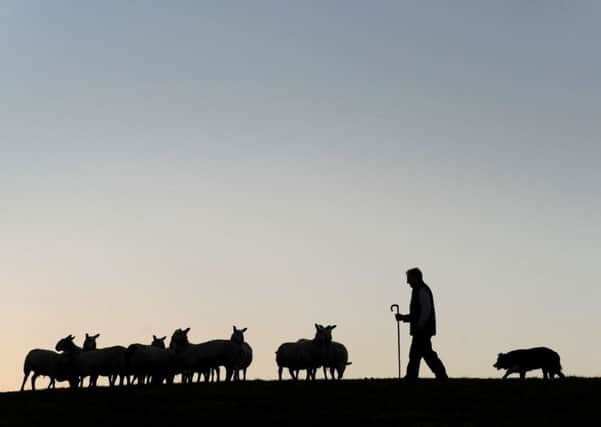Thinly veiled warning for land agents to toe the line
This article contains affiliate links. We may earn a small commission on items purchased through this article, but that does not affect our editorial judgement.


Warning the profession to “keep on top” of the codes as they were produced, the chair of the Scottish Land Commission, Andrew Thin, said that there should be no mistaking that those who rode roughshod over the aims of the codes would be brought to book.
• READ MORE: Farming news
He said that, while the commission’s teeth might initially be limited to naming and shaming the small minority who indulged in poor practice, if the damage this would inevitably cause to their professional standing failed to act as a deterrent then further sanctions would be introduced.
Advertisement
Hide AdAdvertisement
Hide Ad“While we are aiming for a situation where no one is ever in breach of the codes, we will strengthen the codes if required – and alternatively we could slacken them if need be,” he said.
However, Thin stressed that the codes would not simply be a description of what the law entailed – “we have lawyers for that” – but would focus on attitudes and processes which would ensure that the spirit of the land reform measures were met.
“Basically, the codes will be about what ‘reasonable’ looks like,” said Thin in the keynote address at the Royal Institute of Chartered Surveyors mid-session conference outside Perth.
• READ MORE: Mistrust between landowners and tenants is growing
He also revealed that the first of the codes – likely to address the improvement amnesty and limited partnership agreements – would be released by the new tenant farming commissioner, Dr Bob McIntosh, when purdah ended after the general election.
While the new codes were likely to build on the interim ones drawn up by Thin in his previous role as special adviser to the Scottish Government on farm tenancy issues, he said that although consensus would be sought, the commissioner would publish the codes even if agreement could not be reached.
Advertisement
Hide AdAdvertisement
Hide AdThin also said that the wider role of the Land Commission was to get the most out of Scotland’s land for the greatest number of people – and that this would extend beyond simple property rights.
But he drew criticism from the audience over his assertion that the quality of land-use decisions was often poor – with a tendency to lead to a single land use rather than offering the opportunity for many.
“In other areas of commerce, most sizeable companies make corporate social responsibility an important factor in taking major decisions – but this doesn’t seem to be the case with many of those affecting the use of land,” he said.
However, James Galbraith of CKD Galbraith argued that traditional estates had always taken the wider view of local communities into account rather than taking decision on selfish grounds.
Asked how he saw the wider community involvement contributing to the financial side, Thin said that the public could justifiably ask if they were getting good value for money from the considerable tax concessions which often went with land ownership.